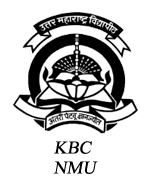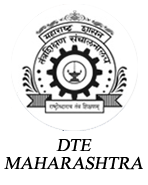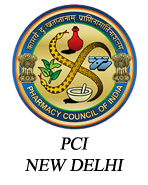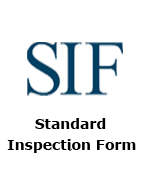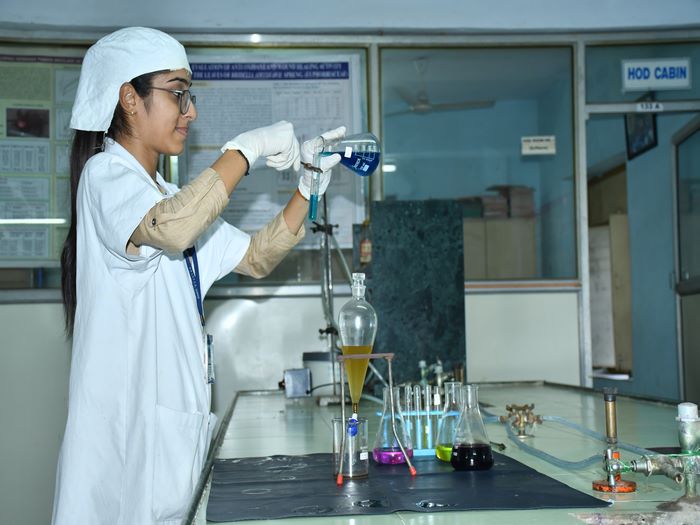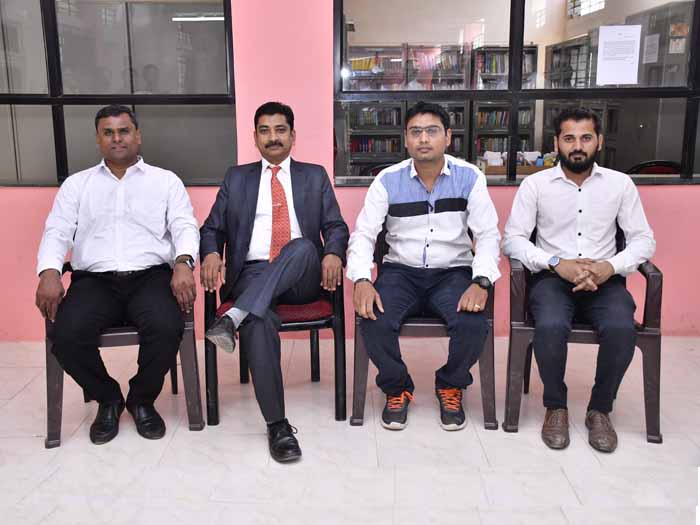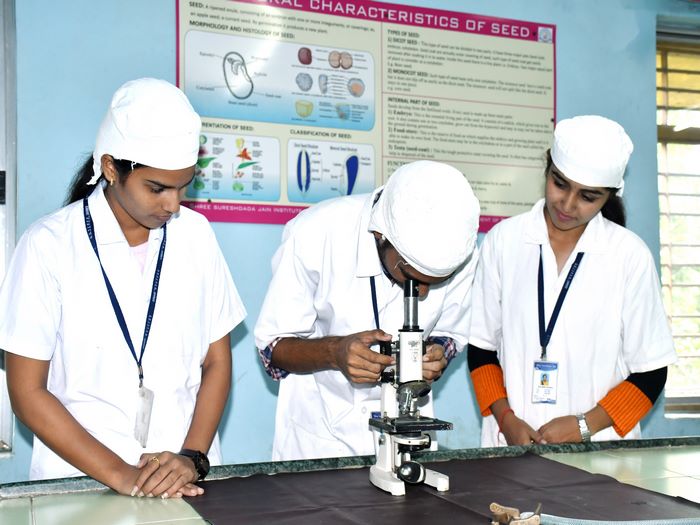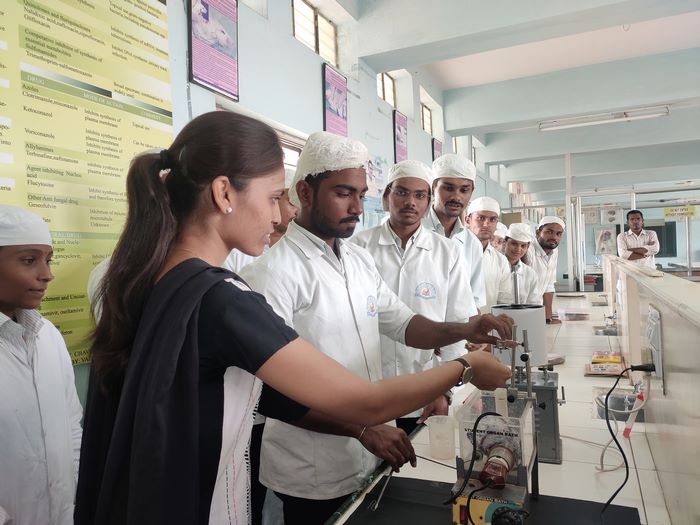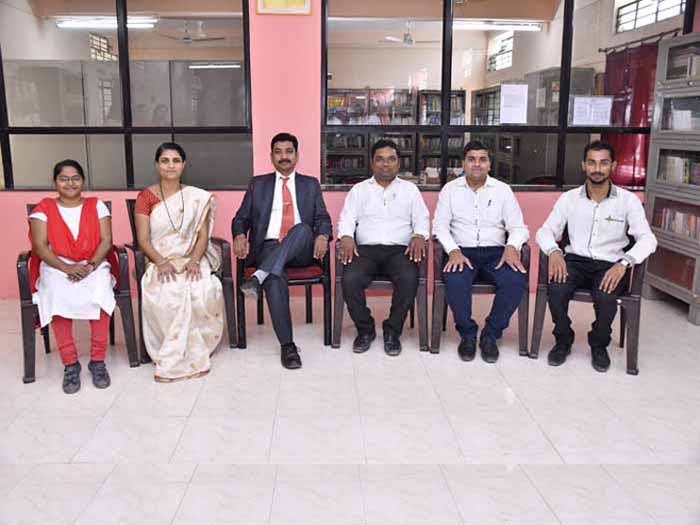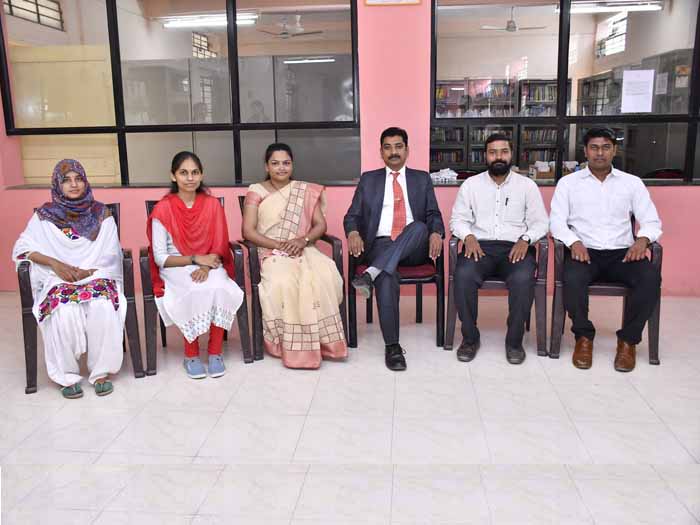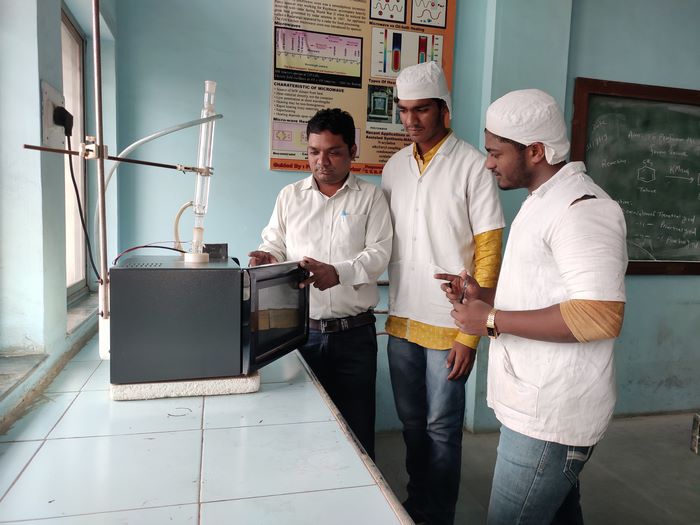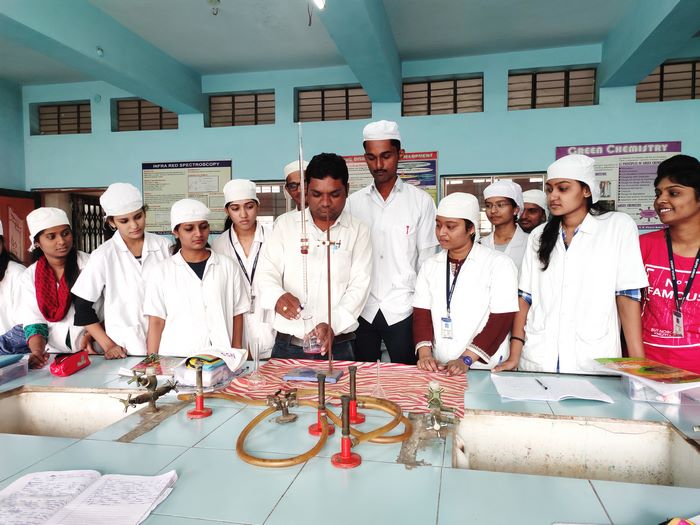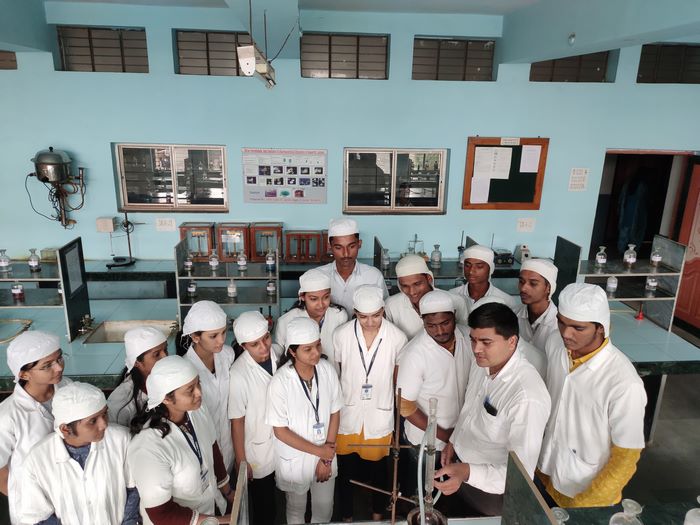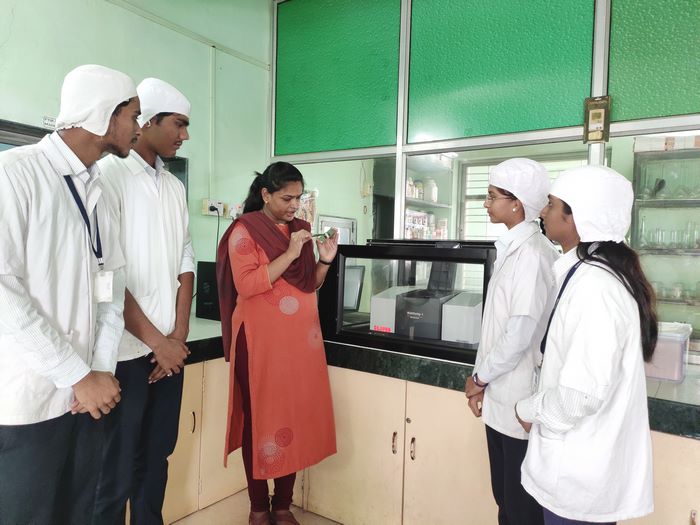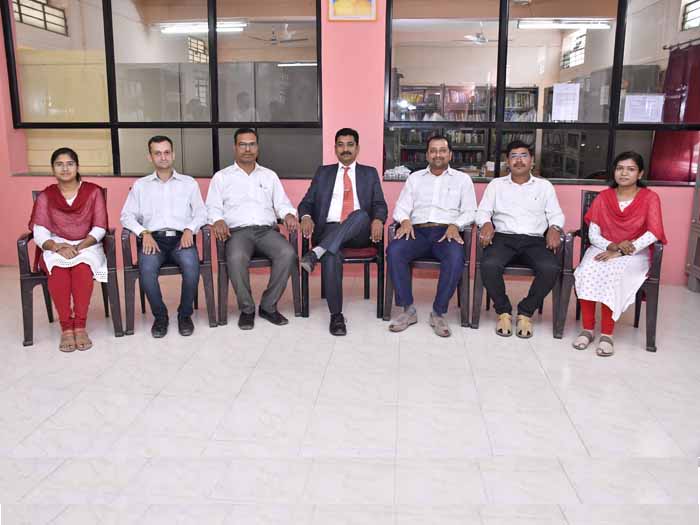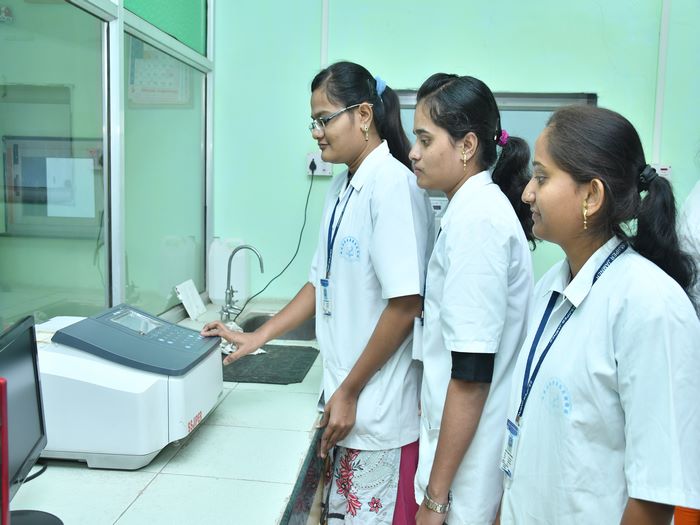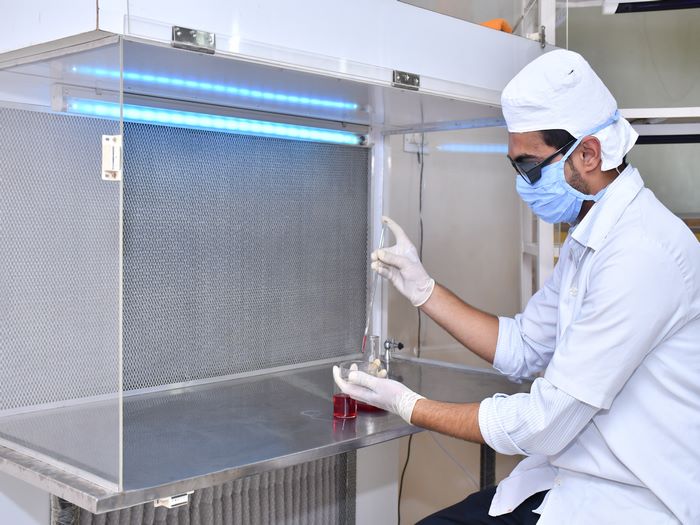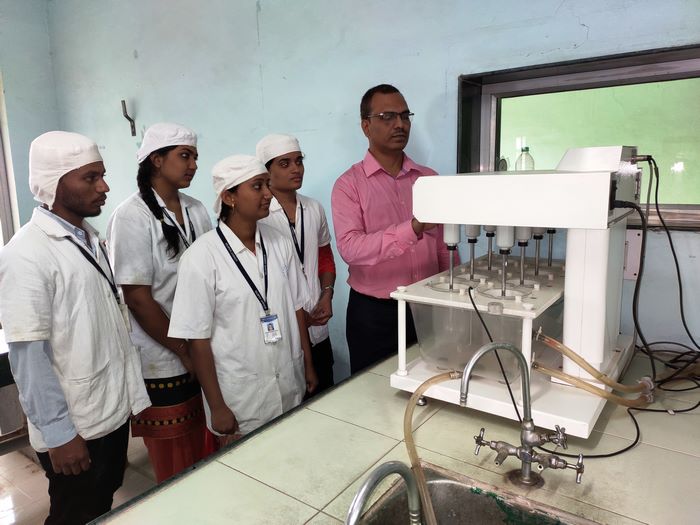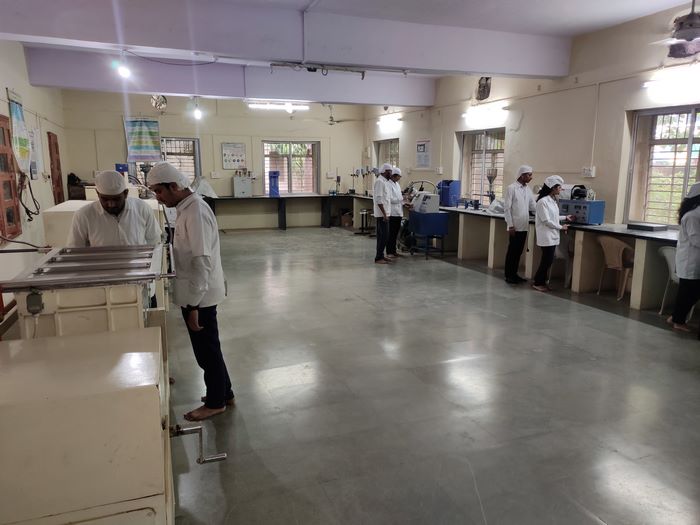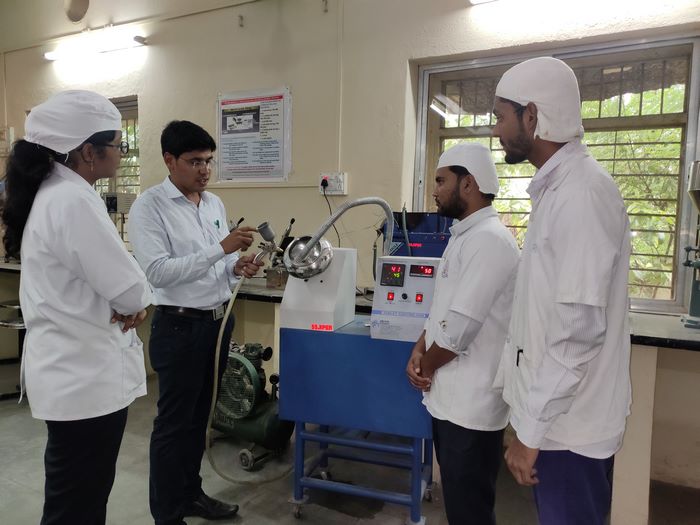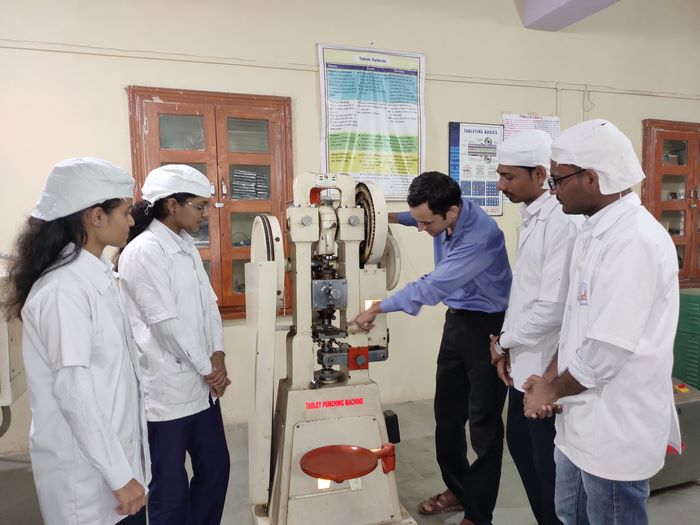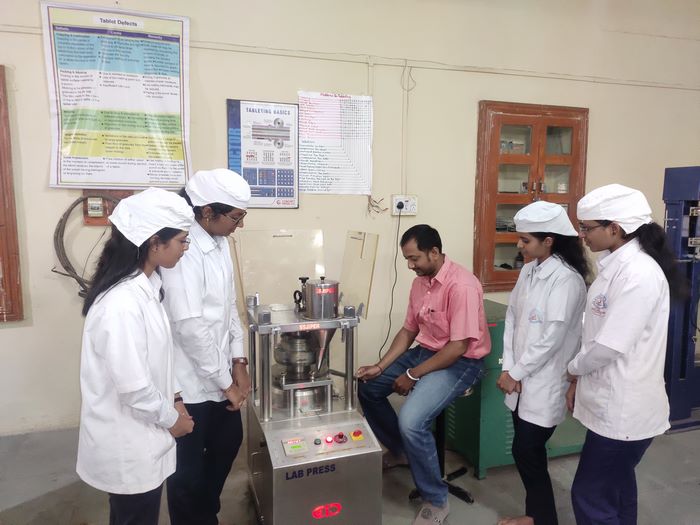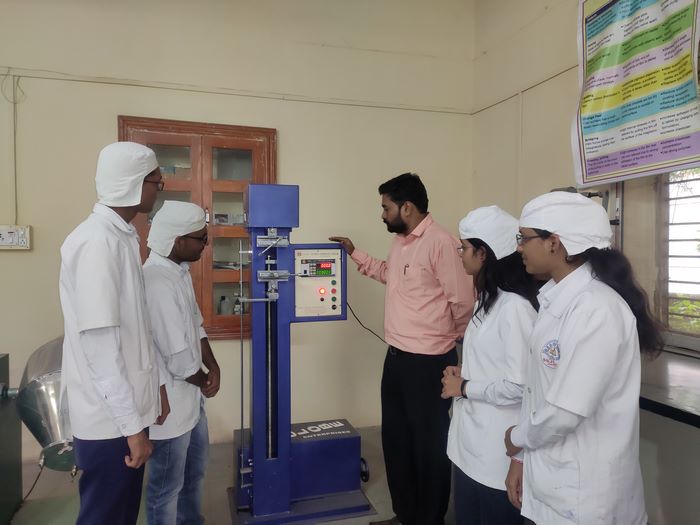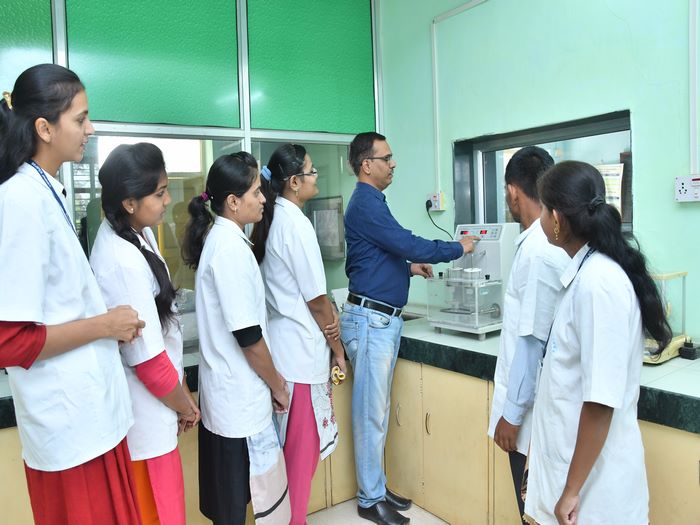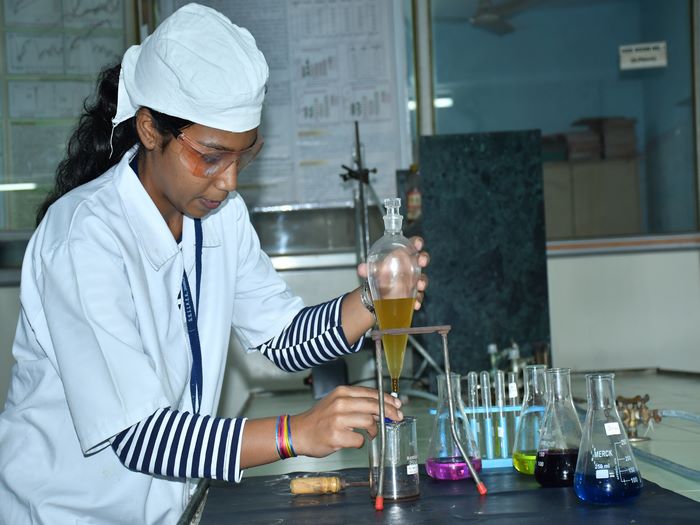Departments of Pharmaceutical Chemistry
Overview:
Pharmaceutical Chemistry laboratories are meant to inculcate the chemical & analytical aspects of drug molecules starting from basic organic chemistry to drug design, synthesis of new drugs and analysis of drug molecules in formulation. At the under graduate level total nine subjects are studied in a systematic manner including, basic and advances in organic and inorganic chemistry, chain reaction of drugs, structure activity relationships (SAR), synthesis of drugs & drug intermediates and excipients on lab scale and analysis of drugs.
Our strategy for achieving global standards is to develop a "Drug design and synthesis research laboratory" with excellent facilities in par with industrial standards and to possess accreditation of government research organizations, Pharmaceutical industries and international standard organizations.
| Laboratories | Major Equipment |
|---|---|
| Pharmaceutical Chemistry | U.V-Spectrophoto-Meter |
| Polarimeterr | |
| Oil bath | |
| Water Bath | |
| Distill water still | |
| Hot air oven | |
| Incubator | |
| Centrifuge | |
| Refracto meter | |
| Compound Microscope | |
| pH Meter | |
| Colori meter | |
| Refrigerator | |
| Conductometer | |
| Chromatographic column | |
| Electronic balance | |
| Rotamantle | |
| Digital Balance |
Upon the completion of the course students shall be able to know:
- Students are trained to determine the extent of purity of raw materials and drugs in pharmaceutical dosage forms using highly sophisticated instruments.
- As well as they are trained in various analytical techniques.
- In this way skill development of student is facilitated so that they can efficiently exert duties responsibly in Research and Development.
- As well as in Quality Assurance and Quality Control department of Pharmaceutical Industry.
Dept. of Pharmaceutics
OVERVIEW
Pharmaceutics is the discipline of pharmacy that deals with all facets of the process of converting a new chemical entity (NCE) into a Dosage forms like Tablets, Capsules, Oral Liquids, Ointments, Injectable, Aerosols, Transdermal Patches etc. that can be safely and effectively used in the clinical practice.
Pharmaceutics is the science of dosage form design on the basis of physicochemical properties, rate and extent of absorption of drugs and route of administration. Pharmaceutics also includes study and formulation of cosmetics & Cosmeceuticals, like face powders, cold creams, sunscreen lotions, tooth-pastes, nail-polish, lip-sticks etc.
The department of Pharmaceutics has well equipped laboratories where students are trained in the various formulation development techniques and related quality control of formulations aspects which is essential for future scope.
Upon completion of this course the student should be able to: Know
- Understand the basics of different dosage forms and their manufacturing techniques
- Pharmaceutical incompatibilities
- Pharmaceutical various calculations for formulating different dosage forms Understand the professional way of handling the various pharmaceutical instruments like Tablet punching (single & Multiple) Capsule Filling, sealing, hand operated & automated machinery for different dosage forms.
- Formulate solid, liquid and semisolid dosage forms and evaluate them for their quality standards.
Dept. of Pharmacognosy
OVERVIEW
Pharmacognosy deals with medicines derived from natural sources and it involves the study of the physical, chemical, biochemical and biological properties of molecules of natural origin, obtained from plants, animals, minerals and marine sources so as to ascertain their potential as lead drug molecules.
Pharmacognosy is interdisciplinary branch involving a broad spectrum of biological and socio-scientific topics, including botany, ethno-botany, marine biology, herbal medicine, Phytochemistry, plant biotechnology – tissue culture, production of secondary metabolites and development of herbal formulations.
The department of Pharmacognosy focuses on research based on evaluation of medicinal plants including isolation, purification, identification and structural elucidation of bioactive molecules and development & standardization of herbal formulations.
It has the following advanced instruments and equipment's for various Pharmacognostical and Phytochemical Studies.
| Department | Instruments |
|---|---|
| Pharmacognosy | Ultra centrifuge |
| UV Cabinet | |
| Hot air oven | |
| Hot Plates | |
| Soxhlet extractors | |
| Clavenger apparatus | |
| Heating Mantles | |
| Distillation unit | |
| Muffle Furnace | |
| Chromatographic columns of various sizese | |
| Chromatography chambers | |
| Compound Microscopes |
Upon the completion of the course students shall be able to know:
- Basic Pharmacognosy experiments.
- Extraction and isolation of Phyto- constituents from plants and plant materials.
- Pharmacognostical and Phytochemical investigation of medicinal herbs.
- Standardization and evaluation of herbal formulations and extracts.
- The techniques for improving the quality of medicinal herbs.
Dept. of Pharmacology
OVERVIEW
The main purpose of the subject is to understand what drugs do to the living organisms and how their effects can be applied to therapeutics. The subject covers the information about the drugs like, mechanism of action, physiological and biochemical effects (Pharmaco-dynamics) as well as absorption, distribution, metabolism and excretion (pharmacokinetics) along with the adverse effects, clinical uses, interactions, doses, contraindications and routes of administration of different classes of drugs.
The Pharmacology department is in its way of large scale developmental activities. Many most advanced types of equipment are procured very soon. Expansion works of the labs are already on the progress.
| Laboratories | Major Equipment |
|---|---|
| Pharmacology Lab | Microscope (Compound) |
| Kymograph | |
| Electronic stimulator | |
| Refrigerator | |
| Rota rod apparatus | |
| Eddies Hot plate | |
| Electronic tissue float bath | |
| Rabbit holder | |
| Spring balance | |
| Digital photo Actometer | |
| Organ bath | |
| Refrigerator | |
| Water still | |
| Spirometer | |
| Digital thermometer | |
| Dissection microscope | |
| Electronic balance |
Upon completion of this course the student should be able to:
- Understand the pharmacological actions of different categories of drugs
- Explain the mechanism of drug action at organ system/sub cellular/ macromolecular levels.
- Apply the basic pharmacological knowledge in the prevention and treatment of various diseases.
- Observe the effect of drugs on animals by simulated experiments
- Understand the mechanism of drug action and its relevance in the treatment of different infectious diseases
- Comprehend the principles of toxicology and treatment of various poisonings
- Appreciate correlation of pharmacology with related medical sciences.

 Affiliations & Approvals By
Affiliations & Approvals By